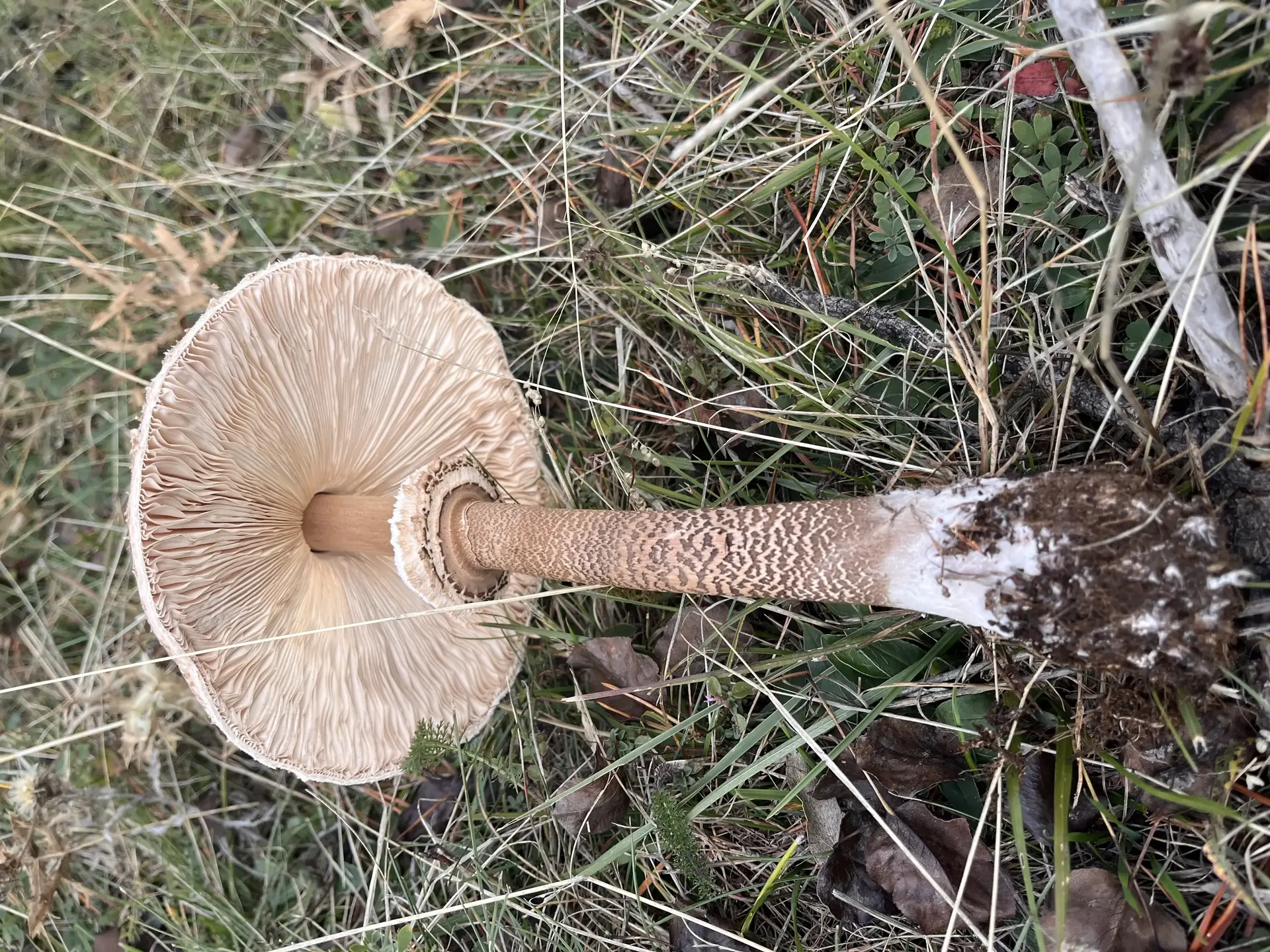Shaggy Parasol Complex
Chlorophyllum rhacodes
Large Scaly Mushroom: High Risk of Toxic Lookalikes

1 / 2
Wszystkie zdjęcia (2)
Kluczowe cechy
- Large cap covered in dark
- shaggy scales
- Free
- crowded
- white gills
- Tall stem with distinct brown snakeskin (reticulate) pattern
- Large
- movable
- double-edged ring (annulus)
- Bulbous base obscured by soil and debris
Kolor:
White gills; brown scales over lighter cap; brown patterned stem
Zapach:
Unknown
Wzór wzrostu:
Single
Środowisko:
Soil and grass
Siedlisko i występowanie
Siedlisko:
Grassy area near trees (likely mixed woodland edge)
Występowanie:
Widespread in temperate regions globally
Sezonowość:
Late summer through autumn
Kluczowe cechy do potwierdzenia
- Spore print color is critical for distinguishing toxic lookalikes (e.g., C. molybdites)
- Context color change (bruising) is not visible
Wartość ekonomiczna
Popyt rynkowy:
Unknown - high risk of misidentification prevents commercial use
Zakres cenowy:
N/A
Użytek komercyjny:
None
Podobne gatunki
Green-spored Lepiota
Chlorophyllum molybdites
Kluczowe różnice:
- Spore print is green (not white)
- Context does not typically stain red/orange when cut
- Often lacks the strong snakeskin pattern on the stem
Parasol Mushroom
Macrolepiota procera
Kluczowe różnice:
- Cap scales are finer and flatter, not shaggy
- Stem pattern is usually more pronounced and less shaggy at the base
Deadly Dapperling
Lepiota brunneoincarnata
Kluczowe różnice:
- Significantly smaller size (cap diameter typically < 5 cm)
- Stem lacks the prominent snakeskin pattern
Zalecane działanie
Do not consume. Requires spore print and context bruising test for definitive identification.